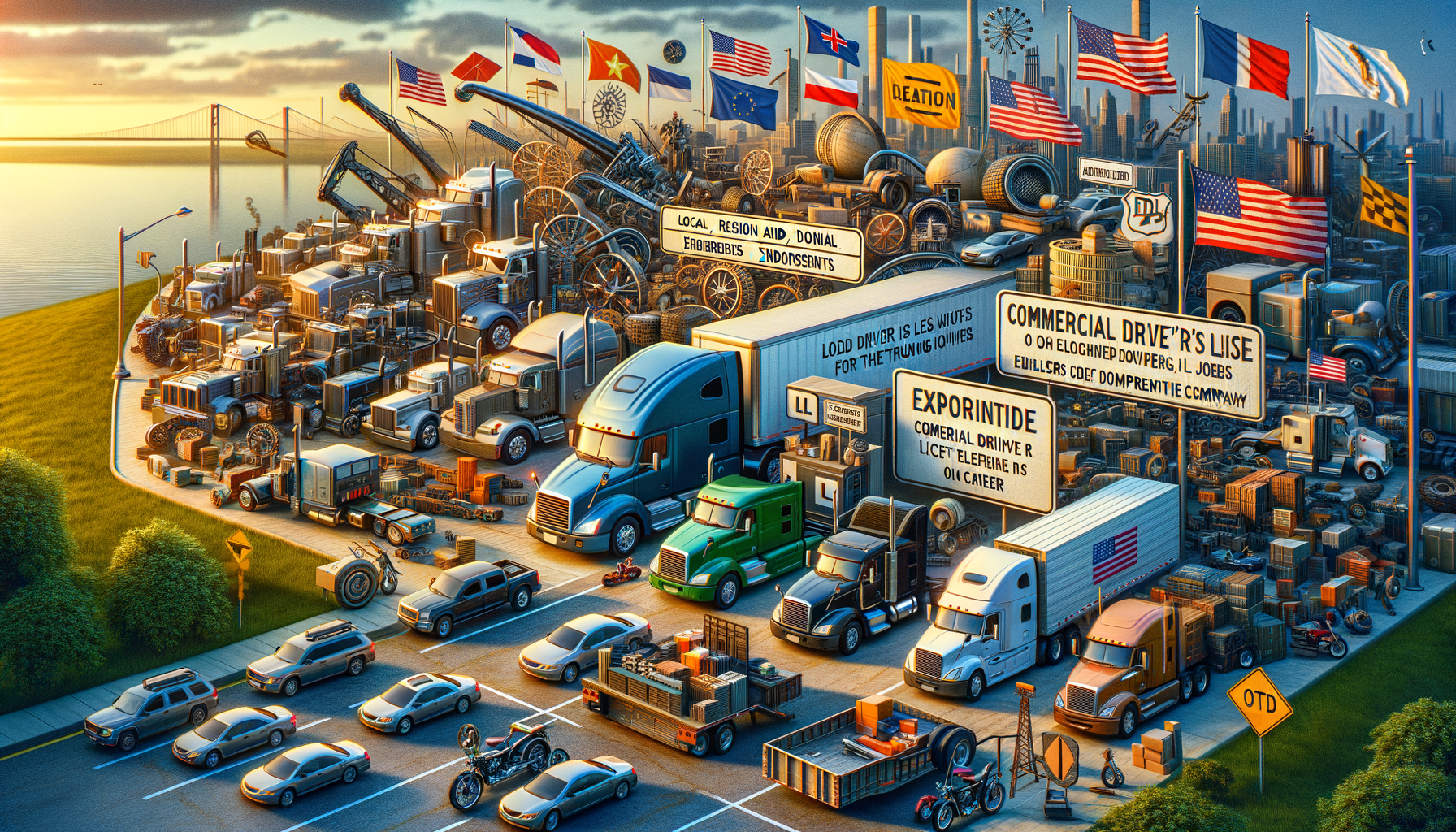
Explore Truck Driving Opportunities Across the U.S.
Types of Truck Driving Jobs: Local, Regional, and OTR
The trucking industry is a vast field offering a variety of job types catering to different lifestyles and preferences. Local truck driving jobs are ideal for those who prefer to stay close to home, often involving daily routes within a limited area. These positions allow drivers to return home each night, providing a balanced work-life routine. Local drivers typically handle deliveries within cities or towns, making them a great fit for those who value family time and stability.
Regional truck driving jobs cover a larger geographic area, usually spanning several states within a specific region. Drivers in these roles often spend a few days on the road before returning home. This option strikes a balance between local and long-haul driving, offering the opportunity to explore new areas while maintaining regular home time.
Over-the-Road (OTR) truck driving is for those who love the open road and are willing to travel across the country. OTR drivers can be away for weeks at a time, experiencing the diverse landscapes of the U.S. This type of job is suitable for individuals who enjoy long-haul journeys and the adventure of traveling to different states.
Understanding CDL Requirements and Endorsements
To embark on a trucking career, obtaining a Commercial Driver’s License (CDL) is essential. The CDL is divided into three classes: Class A, B, and C, each allowing drivers to operate different types of vehicles. Class A CDL is the most versatile, permitting the operation of large vehicles like tractor-trailers. Class B is for operating single vehicles with a higher weight capacity, such as buses or dump trucks, while Class C covers smaller vehicles designed for transporting hazardous materials or more than 16 passengers.
Endorsements are additional qualifications that enhance a driver’s capabilities. Common endorsements include H for hazardous materials, N for tank vehicles, and P for passenger transport. These endorsements require additional testing and are crucial for drivers looking to specialize in specific types of freight or vehicles.
Understanding these requirements and endorsements is vital for aspiring truck drivers, as they determine the types of vehicles one can operate and the job opportunities available. Investing time in acquiring the right endorsements can significantly expand career prospects within the trucking industry.
Finding the Right Trucking Company for Your Career
Choosing the right trucking company is a crucial step in building a successful driving career. When evaluating potential employers, consider factors such as pay scale, benefits, work-life balance, and company culture. It’s important to research companies thoroughly, reading reviews from current and former employees to gain insights into their experiences.
Many trucking companies offer competitive benefits, including health insurance, retirement plans, and bonuses. Some companies are known for their supportive work environment and opportunities for career advancement. It’s also beneficial to consider the types of freight a company handles, as this can influence the driving experience and personal satisfaction.
Networking with other drivers and attending industry events can provide valuable information about different companies and help you make an informed decision. Ultimately, finding a company that aligns with your career goals and lifestyle preferences will lead to a more fulfilling and rewarding trucking career.
The Role of Technology in Modern Trucking
Technology has transformed the trucking industry, making it more efficient and driver-friendly. Modern trucks are equipped with advanced systems that enhance safety, improve fuel efficiency, and simplify logistics. GPS navigation, electronic logging devices (ELDs), and advanced telematics are just a few examples of the technologies that have become integral to the daily operations of truck drivers.
ELDs, for instance, help drivers track their hours of service, ensuring compliance with federal regulations and promoting road safety. Telematics systems provide real-time data on vehicle performance, allowing companies to optimize routes and reduce fuel costs. These technologies not only streamline operations but also contribute to a more sustainable and environmentally conscious industry.
As technology continues to evolve, drivers must stay informed about new developments and embrace digital tools that can enhance their skills and efficiency. By leveraging technology, drivers can improve their work experience and contribute to the overall advancement of the trucking industry.
Preparing for a Career in Truck Driving
Embarking on a truck driving career requires preparation and dedication. Prospective drivers should start by researching the industry, understanding the different types of driving jobs, and identifying their personal preferences and goals. Enrolling in a reputable truck driving school is a crucial step, as it provides the necessary training and education to obtain a CDL.
Networking with experienced drivers and industry professionals can offer valuable insights and advice, helping newcomers navigate the challenges of the profession. It’s also beneficial to stay informed about industry trends, regulations, and technological advancements to remain competitive and adaptable in a rapidly changing field.
Ultimately, a successful truck driving career is built on a foundation of continuous learning, adaptability, and a passion for the open road. By taking the time to prepare and invest in their professional development, aspiring drivers can achieve their career aspirations and enjoy a rewarding journey in the trucking industry.

